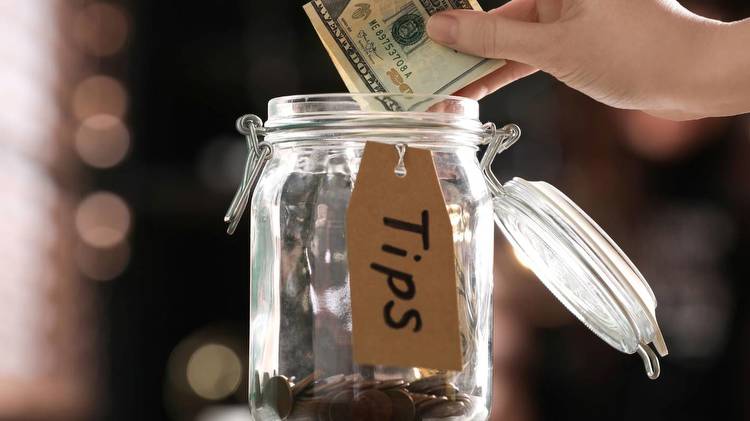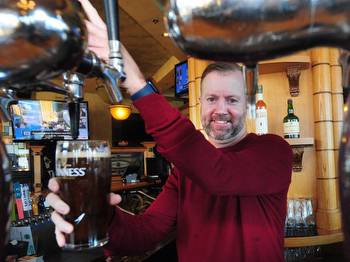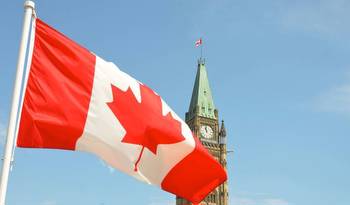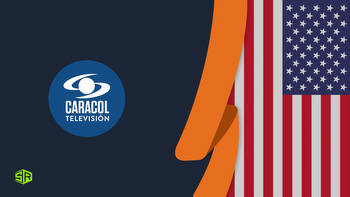Stressed by tipping overseas? A guide for panicked 'New Zealanders on tour'

Josh Martin is a London-based Kiwi journalist.
OPINION: Tipping. A bonus. A bother. A few coins left on a plate with the bill? A strange Americanism transferring the responsibility of rewarding staff from business owner to customers?
Either way, it’s a cultural quirk of capitalism that leaves Kiwis abroad confused. Nothing says “New Zealander on tour” like panicked looks and calculators-at-the-ready when a bill or touch-screen offers suggested extra payments of 15%, 20% or 25% for service staff.
Cashless and contactless seem to have made the encounter even less discrete.
The confusion doesn’t end with your meal though: taxi drivers, hairdressers, cleaners, bellboys and guides are all in on the trick in certain destinations too. Thankfully, this handy guide should clear the air, if not your conscience, on the dos and don’ts of the tip.
The US
Even if not the actual birthplace of tipping (that’ll be mediaeval Europe), the US is certainly the cultural home of tipping and where most tourist-tipping anxiety eventuates.
It’s a minefield that feels distinctly unjust and rooted in strange power dynamics which feel at odds with New Zealand ideals of egalitarianism and, ya know, sound labour laws – but it’s not going anywhere soon.
David Farrier’s Flightless Bird podcast recently explored this cultural phenomena and it’s worth listening to, but for those heading Stateside soon, the upshot is that you’ll need to factor in a minimum of 15% to your travel budget to cover tips, and the knowledge that whatever price is on a menu is almost certainly less that what you’ll eventually be charged, when accounting for taxes, tips and fees. What joy.
What’s more, due to the cultural dominance of the US and millions of Americans travelling abroad each year, this arbitrary rule on staff remuneration has been exported abroad, particularly to tourist hotspots where the locals would never dream of tipping each other usually, in effect, becoming another tax on travel.
Canada
America’s neighbour to the North has tipping as a customary standard, although at a slightly lower percentage of the total bill. Thankfully service staff are paid at least the minimum wage, unlike servers in several US states, so you, as a customer, are not the difference between poverty and fair pay rates.
If you’re dining in a larger group, the tip may automatically appear as a bill item charged at between 15-20%.
The UK
I get more and more prompts nowadays suggesting I add a tip: food delivery, Ubers, the most aggrieving has to be counter service staff who spend all of 20 seconds serving you a cold slice of cake to go. It seems to be seeping into London hospitality especially, a city-wide “discretionary service charge” of 12.5% is automatically added to your bill, be it Michelin or Monday night pub dinner. You can ask to take it off, but nobody, my embarrassed friends tell me, does this.
There have been a string of mini-scandals in recent years of chain restaurants in particular taking all or some of this extra levy, which makes me dislike it more, along with the fact that it doesn’t exist outside the capital, despite those staff out in the regions typically earning less.
Continental Europe
Tipping in France is seen more like a small gesture for very good service, rather than an ingrained practise. In Italy there may be extra charges, like coperto or servizio, which aren’t strictly the same as a tip, they’re more like cover charges for the privilege of sitting alongside St Mark's Square and the servizio (service charge) doesn’t all go to the staff. Tips on top of this aren’t expected.
In Spain, you may round up your dinner and drinks bill and leave the change behind, but again it’s not of the size that you have to think about, let alone budget for. Destinations frequented by Americans (always blame the Yanks) have started adding a "Tip not included" line, in English, to the bottom of the bill or menu. The clue here is that it’s written in English. Again, it’s up to you, but not customary.
You may wish to tip your tour guide or Uber driver if they were particularly good, but, again this isn’t the norm (unless it’s something like a free walking tour, in which case the tips make up the vast bulk of their daily income, so you’ll need to stump up).
Japan and China
In Japan, its assumed great service is a given and not driven by the server to top up their income with an insincere smile or delivering an order correctly. I think this ideal aligns best with the Kiwi attitude, although hospitality staff in Aotearoa would never be embarrassed to receive a gratuity as a nice bonus, it’s not a factor in their performance. In Tokyo and Osaka, staff may actively refuse the yen you leave behind.
In Mainland China tipping is also very uncommon and deemed unnecessary for most transactions, although it is more commonplace in Hong Kong due to the Western influence there. However, it’s far from expected and most likely reserved for hotels and hospitality servers going above-and-beyond (carting your 30kg luggage up flights of stairs, for example).
Thailand and South-East Asia
The end-of-tour tip jar passed around a longtail boat has become as much of a mainstay in Thailand as cocktail buckets and street-side pad thai. A couple of hundred Thai baht should cover it. Due to an influx of tourism in the last few decades tipping has become more common in hotspots from Bali to Bangkok.
Upscale restaurants in Vietnamese cities may include a service change, but this is far from guaranteed to reach front-of-house staff, so if you are going to tip leave cash with your waiter. Throughout the region, it’s not customary, but appreciated, so if the extra baht, dong or rupiah means nothing to you, it might mean more to them.
The UAE and Middle East
In a city full of expats, tipping etiquette in Dubai is quite subjective. The combinations of home countries between server and recipient means your leftover bonus could be gratefully received or raise eyebrows.
Generally, suggested tips of around 10% of the bill, perhaps a little more, should be budgeted for visits to restaurants or spas, even though dining establishments will also add a service charge, not all of that necessarily goes to wait staff. Meanwhile, delivery drivers, cleaners, even supermarket bag-packers might get to keep the change. Home services staff might get around 30 dirhams a day extra in tips.
India
A gratuity for good service, or baksheesh, is not mandatory, but customary for services like hospitality and private transportation. If you hired a driver for the day, they’d expect a tip and leaving a baksheesh at a restaurant or bar of between 5-10% for good service is customary, but open to interpretation.




































